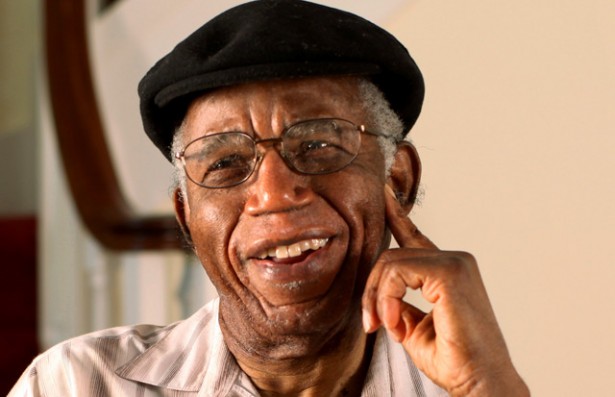
Internationally acclaimed Nigerian author Chinua Achebe died this past Thursday in Boston. He was 82.
At the age of 28 Achebe penned the African masterpiece Things Fall Apart. The novel told the story of European colonialism from the perspective of Nigerian protagonist Okonkwo, who rises to power only to be challenged by British colonial rule. Since its release in 1958, All Things Fall Apart has sold over 12 million copies.
Throughout his writing career, Achebe worked to shift the perception of African colonialism. His words gave a voice to the people and challenged the widely understood history of European colonialism. His stories were often tragic, compelling, and in one case, prophetic. His fourth book, A Man of the People was published in 1966 – just days before the Nigerian military overthrew the government. The book centers around a fictional military coup and predicted the events leading up to the topple of the government with such accuracy that he was accused of being part of the original coup. Fearing for their lives, he and his family was forced to flee the country, eventually relocating in England.
He returned to Nigeria after the civil war ended – albeit for a brief two years. Following his return to his homeland he moved to the United States to teach at the University of Massachusetts as well as the University of Connecticut. In 1979 he returned to Nigeria to at the national university. Achebe went more than twenty years before writing another novel, attributing his writer’s block to the emotional and mental aftermath of Nigeria’s civil war. His fifth novel Anthills of the Savannah was published in 1988 and received critical acclaim.
Two years later however, Achebe life was changed forever. A car accident left him paralyzed from the waist down. After receiving treatment, Achebe moved back to the United States where he taught at Bard College until 2009. In 2012 he published his final book, There Was a Country: A Personal History of Biafra.
In total, Achebe wrote seven books, and was awarded several recognitions, including the Man Booker International Prize for lifetime achievement in 2007. He leaves behind a grand legacy, in which he played an important role in repainting the way the world views Africa.
(Photo credit: AP Photo/Brown University, Mike Cohea)
Think people should hear about this?